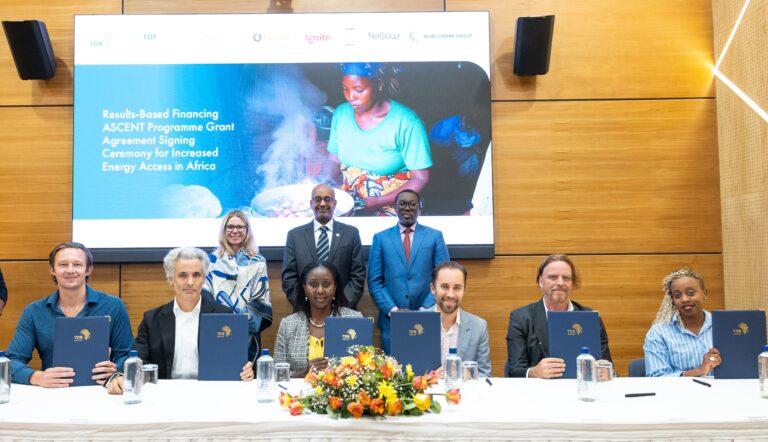The Trade and Development Fund (TDF), a member of the Trade and Development Bank (TDB) Group, and the World Bank Group have signed five grant agreements worth USD 10.8 million under the ASCENT program. The announcement, made on Monday, 24 November, signals a significant push to expand access to clean energy solutions across multiple regions.
The ASCENT program targets households that rely on polluting fuels such as kerosene, charcoal, and firewood, as well as areas with unreliable electricity access. Its goal is to deploy more than 350,000 clean-cooking stoves and distributed solar systems, benefiting an estimated 1.8 million people. The program emphasizes results rather than intentions, focusing on actual systems delivered and operational, rather than studies, workshops, or pilot projects.
Distribution under ASCENT will rely on private-sector partners with existing networks and experience in local markets. These companies will use local agents, retail partners, and community distributors to reach households directly. For cooking solutions, this may involve suppliers already selling LPG or efficient cookstoves. For solar systems, the supply chain includes PAYGo companies, rural energy shops, and regional service providers who can maintain systems after installation.
The program is built around TDB Group’s results-based financing (RBF) mechanism. Companies receive payments only after systems are installed, verified, and operational. This shifts risk to the companies, incentivizing efficiency, accountability, and sustainable business models. Only companies capable of delivering real, verifiable results will receive funding, creating a performance-driven environment that avoids typical delays and inefficiencies in donor-funded programs.
Financing models are central to ASCENT’s strategy. Many energy access projects fail not because technology is ineffective but because the financial framework collapses. Households often cannot afford full upfront payments, while companies struggle with inventory, distribution, and service costs without reliable cash flow. ASCENT addresses these gaps, supporting companies until their operations reach sufficient scale and sustainability.
Read Also: Limpopo commits to halving road fatalities by 2030 as data-led safety programme enters new phase
The TDF, World Bank collaboration reflects a focus on measurable impact. It is not a grant for studies or planning but a program that directly finances results in the field. By aligning funding with performance, ASCENT seeks to demonstrate that private-sector-driven energy solutions can reach large populations efficiently.
If successful, the program could reshape energy access approaches in the regions targeted, providing clean cooking and solar solutions to millions while proving that structured, results-based financing can make such large-scale deployments feasible.
The ASCENT program is a test of disciplined delivery, commercial sustainability, and practical energy access. Its progress will be closely watched by governments, development partners, and energy companies aiming to replicate a model where private firms deliver at scale and communities gain tangible improvements in daily life.



